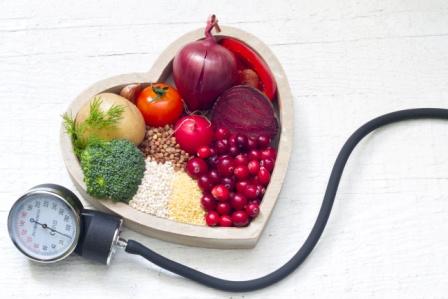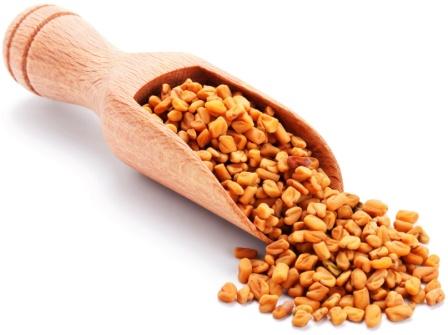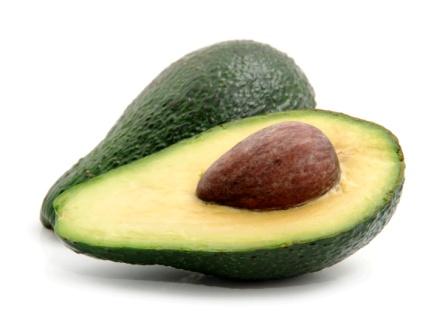47 Good Foods And Home Remedies To Reduce High Cholesterol
Article by Dr Raghuram Y.S. MD (Ay)
In the management of high cholesterol, diet control and home remedies play a very crucial role. They are more important than medicines. Try these good foods and home remedies to reduce high cholesterol.
Honey – it is a rich abode of minerals and vitamins. Honey fights cholesterol. The antioxidants in the honey do not let the cholesterol move out of the blood and also prevents its entry into the lining of blood vessels.

Drink 1 cup of hot water added with 1 teaspoon of honey. To this solution you can also add 8-10 drops of apple cider vinegar or ½ – 1 teaspoon of lemon juice. This will help to reduce excess fat from your system and maintain normal cholesterol levels.
Cinnamon – Add 1 spoon of ground cinnamon to a cup of boiling water and mix it. Cover it with a lid and allow it to stand for 30 minutes. Later strain this solution and add 1 teaspoon of honey to this. Drink it on empty stomach, preferably half an hour before breakfast.
Garlic – the sulphur content of garlic and anti-clotting factors present in garlic helps in balancing the cholesterol level and reduce the formation of plaque in blood vessels. It also prevents clots that can cause heat stroke. Freshly grated or peeled raw garlic can be used onto salad dressings, dal, rasam, pizza or soups. Alternatively 2-4 cloves of garlic can be consumed daily with warm water every day.
Garlic milk recipe (Rasona Ksheera Paka) – Take 6-8 cloves of garlic and peel them. Crush them and make their paste. Boil this milk with 50ml milk and 200ml water on moderate flame. Keep stirring the contents to avoid charring of garlic at the bottom. When the whole water has been evaporated (only 50 ml remaining), the contents are filtered. The recipe is consumed hot. Read more about it
Turmeric – It helps lower LDL cholesterol. Hence it can cut down the build-up of plaques in the arterial walls. This may help in lowering blood cholesterol. Turmeric powder can be used as an additive to curries and vegetables. Alternatively boil ¾ teaspoon turmeric and 2 tablespoons of cooked and mashed eggplant (brinjal) in 1 -2 spoons of water and spread the resultant paste on the whole wheat bread. Eat this after meals.
Fenugreek (methi) seeds – are rich in potassium, iron, calcium, selenium, zinc and manganese, also contain good quantities of Vitamins A, B and C. the components steroidal saponins present in fenugreek reduces the absorption of cholesterol by the body that comes from fat-rich foods.
Take 2 ounces of fenugreek seeds daily to lower the level of cholesterol. It also reduces the risk of heart attacks.
The powder of these seeds can be consumed with warm water in a dose of ½ to 1 teaspoon once or twice daily
Fenugreek leaves can be added to salads and consumed

To avoid the bitterness of the fenugreek seeds, they should be soaked in water overnight. Leaves are not bitter, in fact they provide a good aroma and taste to the food.
Coriander seeds – Studies have shown that coriander can lower the levels of cholesterol and triglycerides. The seeds have hypoglycaemic effect. Therefore they are also useful for diabetic patients. Take 1 cup of water and add 2 teaspoons of coriander seed powder to it. Boil this solution for few seconds. Strain it. Add milk, sugar and cardamom powder. Drink it 2-3 times in a day.
Indian Gooseberry, Amla – is abundant in high Vitamin C and lot of minerals, very good anti-oxidant. It is a natural hypolipidemic agent. Studies also have shown that it has anti-atherogenic and hypolipidaemic effects. It strengthens heart muscles and reduces excess cholesterol that has accumulated. It keeps the arteries clean. Add 1 teaspoon of Gooseberry powder in a glass of warm water. Drink it in the morning on empty stomach.
Celery – has rich quantities of antioxidants. It helps lower the risk of heart disease. it prevents oxidation of LDL cholesterol. Butylphthalide, a component of celery balances the cholesterol levels. Celery can be included in the salads, vegetable juices, soups and other dishes. Celery juice also can be consumed daily. Taking 2 stalks of celery every day, can lower LDL by 7 points.
Ginger – has excellent medicinal properties, known to reduce cholesterol. It is added to curries and many food products. ½ – 1 teaspoon of ginger juice added with a pinch of rock salt shall be taken on empty stomach before food, 2-3 times a day.
Ginger milk recipe – Take a small piece of peeled ginger. Crush it and make into paste. Boil this paste with 50ml milk and 200ml water on moderate flame. Keep stirring the contents to avoid charring of ginger at the bottom. When the whole water has been evaporated (only 50 ml remaining), the contents are filtered. The recipe is consumed hot.
Liquorice – its extract in a dose of 5-15 grams 2-3 times daily is recommended for lowering high cholesterol levels. Alternatively liquorice tea can be consumed. Its powder can be consumed in a dose of ¼ teaspoon with honey 2-3 times per day before food.
Liquorice milk recipe – Take 1 teaspoon of liquorice powder (coarse). Boil this with 50ml milk and 200ml water on moderate flame. Keep stirring the contents. When the whole water has been evaporated (only 50 ml remaining), the contents are filtered. The recipe is consumed hot. (People with high blood pressure, nervous disorders, heart diseases, low potassium levels, kidney diseases, erectile dysfunction and pregnant women should not consume it).
Flaxseeds – are abundant in lignans which decrease blood cholesterol, promote healthy digestive tract and keeps the heart problems away. It has rich content of fibres and omega-3 fatty acids, which checks the production and absorption of cholesterol. Flaxseeds should be taken with hot water to lower the LDL level.
Onions – Grind 1 onion in a juicer. Add one teaspoon of honey in a teaspoon of onion juice. Alternatively take 1 cup of buttermilk and mix one finely chopped onion with one quarter teaspoon of pepper in it. Consume it daily. Red onions are more useful. Scientists in Hong Kong found that they help reduce bad cholesterol and elevate good cholesterol levels. This in turn lowers the risk of developing heart disease.
Beans – are rich in cholesterol lowering fibres, they help in lowering LDL level and keep your heart healthy. All types of beans i.e. kidney, pinto, navy, chickpea, black or butter beans can be eaten. Eat a cup of your favourite bean for 6 weeks on daily basis. This will bring down the cholesterol levels by 10%.
Soybeans – are rich in proteins, phosphorus, magnesium, calcium, B complex vitamins and iron. Eating soya nuts, soybeans and other food products made from soy (tofu and soy milk) are the modest way to reduce the production of new cholesterol. Consuming 25 grams of soya proteins in a day can lower the high cholesterol by 5-6 percent.

Avocados – contains significant amounts of fibres and good fats like oleic acid, healthy monounsaturated fat that lowers the unhealthy cholesterol level and boosts up the HDL (good cholesterol). It can be added to variety of dishes. Being high in calories and fat (30 grams fat and 300 calories per avocado), avocados should be used moderately.
Green Tea – is enriched with antioxidant compounds that can lower cholesterol levels as these compounds help the blood protect the LDL cholesterol particles from oxidation. Hence it prevents the blood clot and relaxes the blood vessels. A single cup of green tea has more antioxidants than any other vegetables or fruits. Take at least 3 cups of green tea every day.
Chicory root
– is an additive for coffee. It is a great source of antioxidants, beta-carotene and vitamin C. it balances the cholesterol level and prevents cardiovascular ailments. It regulates the natural metabolism of body’s cholesterol, thereby checks the high production of LDL. It can be used with coffee, alternatively chicory leaves and buds can be added to salad and other foodstuffs. (Avoid during pregnancy).
Nuts – are loaded with antioxidants, vitamins, nutrients, fibres and healthy monounsaturated fats. At least a handful of nuts should be consumed daily. Peanuts, walnuts, hazelnuts, almonds, pistachios, pecans and other nuts reduce blood cholesterol. According to studies, eating a quarter cup of almonds a day can lower LDL by 4-5 percent. Soya roasted almonds can be consumed without oil. Walnuts contain high levels of omega-3 fatty acids. Chomp them to lower your LDL by 16%. All nuts are high in calories. Therefore they should be taken in lesser quantities.
Oatmeal – rich in soluble fibres and beta-glucans that help in reducing the absorption of cholesterol and lower down its level naturally. LDL levels reduce up to 12-24% on eating 1 ½ cups of oatmeal regularly.
Brown Rice – consists of lot of vitamins, minerals and fibres. Replace white rice with brown rice to kick off the cholesterol as its bran contains highly saturated oil which plays a vital role in balancing cholesterol levels. 1 cup of brown rice provides about 11% of fibres.
Red Yeast Rice – is a traditional Chinese medicine which is known for lowering cholesterol levels. It contains mono-colins, iso-flavones, sterols and monounsaturated fatty acids. For lowering high cholesterol levels, consume 1200 to 2400 mg of the supplement once or twice a day.
Orange juice – is rich in vitamin C, flavonoids and folate. Take 3 cups of fresh orange juice regularly. It can help you to reduce blood cholesterol levels.
Apples – are rich in pectin and contain natural antioxidants known as flavonoids in their skins that lower cholesterol and keeps your lungs and heart healthy. 1 medium sized apple contains vitamin A and C around 4 grams of fibre and less than 100 calories. Fruits like pear, oranges, grapefruit, berries and pomegranate also decrease cholesterol levels because of high fibre content. Consume these fruits with their skin as it contains additional fibres.
Mustard greens – abundant in sulforaphane, calcium, fibres and vitamin C, have anti-inflammatory properties. They regulate blood pressure and cholesterol levels. These are low in sodium, hence reduce LDL. Consume ½ cup of mustard greens in a day. This lowers cholesterol levels by 15%.
Broccoli – are rich sources of variety of nutrients such as calcium, potassium, fibres, magnesium and vitamin C. broccoli possesses antioxidant and anti-inflammatory properties. Its fibres combine with bile acids in the digestive tract and excrete it out from your body. Thus it helps to lower blood cholesterol levels. You can make it a part of your diet and include it in your soups and salads. It should not be overcooked so as to preserve its nutrients. Raw broccoli is less beneficial than steamed ones.
Barley – is a cereal known for lowering blood cholesterol and triglyceride levels and also to normalize blood-sugar. Barley contains a fibre called beta-glucan which reduces the cholesterol levels by 4-10%. It is a good substitute for wheat. It can be regularly used in the form of chapattis and noodles. Gruel prepared from barley is also beneficial.
Tomatoes – are important sources of lycopene, an antioxidant that gives tomatoes their ted colour. Daily consumption of lycopene lowers LDL cholesterol. Eat raw tomatoes or drink their juice. Cooking tomatoes with some oil helps your body to absorb more lycopene.
Brinjal (Eggplant) – contains ample amount of dietary fibres, potassium, vitamin B1 and B6, manganese, folate, copper, niacin and other nutrients that maintain blood cholesterol levels. It contains nasunin, a free radical scavenger that improves the blood flow by relaxing the walls of the blood vessels. Regularly consume eggplant in your diet to reduce harmful LDL cholesterol from your body. It can be consumed in stuffed, marinated, grilled, roasted or fried form. Alternatively eggplant juice can be taken. It should be avoided by people having gall bladder or kidney diseases, acidity problems and during pregnancy.
Beets – are rich in carotenoids and flavonoids which help in checking LDL levels and in enhancing healthy cholesterol levels. It contains essential nutrients – fibres, vitamin C, folate, manganese and potassium. Have beetroot juice or combine it with some other fresh fruit juice.
Spinach – contains plenty of lutein that prevents the cholesterol from getting attached to the arterial walls and protects arteries from clogging. Vitamin E present in it checks the formation of plaque, hence, reduces the risk of heart stroke. Alternatively you can consume baby spinach leaves for a small meal.
Apple cider vinegar – mix 1 teaspoon of organic apple cider vinegar in a glass of water and drink it 2-3 times a day for at least a month. It can be mixed in some fresh orange, grape of apple juice.
Fish oil – and fatty fishes like tuna, mackerel, trout, salmon, herring, bluefish and sardines are loaded with omega-3 fatty acids. They lower triglycerides and prevent heart ailments. Take around 1-4 gram of fish oil daily. Eat at least 2 servings of fish once in a week.
Coconut oil – consists lauric acid that increases HDL and improves the LDL/HDL ratio. While cooking, add moderate amount of organic coconut oil. Consume at least 1-2 tablespoons of this oil daily. Do not use processed or refined coconut oil.
Olive oil – is enriched with heart-healthy monounsaturated fats which cut down the LDL cholesterol without affecting HDL. Take at least 2 tablespoons of olive oil in a day. You can also sauté or toast the vegetables in this oil. Use it instead of butter for basting meat or as a dip for bread. It can be used in salad dressings of for marinating chicken and fish.
Chocolate – is a powerful antioxidant that maintains HDL cholesterol levels. The cocoa flavanols and plant sterols found in dark non-milk chocolate can reduce the LDL cholesterol by 2-5%. The flavonoids in chocolates prevent blood platelets from sticking together and keep the arteries unclogged. Eat about 1 ounce of chocolate in a day to boost up the good cholesterol and prevent bad cholesterol from oxidizing.
Red Wine – alcohol can lift up HDL cholesterol level by 5-15%. Red wine is advantageous in lowering cholesterol level because of its polyphenol antioxidants. Women should deink a 5-ounce glass of wine in a day, men can drink up to 2 glasses. If you don’t like alcohol, substitute it with grape juice.
Yoghurt – regular consumption of 1 cup plain yoghurt with active cultures can reduce your LDL (bad cholesterol) by 4%. It also reduces the overall risk of heart ailment by 10%
Rhubarb – is a cholesterol buster herb. It speeds up the metabolism and lowers the LDL cholesterol because of its high fibre content. Cook it in a double boiler. Add maple syrup or little honey as sweetener. Add cardamom or vanilla. Don’t eat its leaves; they contain poisonous chemicals called oxalic acid. Cooking rhubarb can increase the antioxidant capacity along with its polyphenol content. It is better to avoid it during pregnancy.
Artichoke – its leaves contain cynarine which enhances the production of bile in the liver. This results in rapid elimination of cholesterol from the body, hence unclog the arterial walls. Thus it lowers blood cholesterol levels.
Hawthorn Berry – acts as a tonic for heart. It nurtures entire circulatory system. Thus it lowers cholesterol levels. Its leaves, berries, and flowers are used for curing heart problems. Use it in the form of tincture, capsule or powder, 2-3 times in a day. It can also be taken in the form of tea.
Margarine – are enriched with a substance called plant sterols that help lower the LDL cholesterol. It should be taken on regular basis, for 3 weeks or more to reduce the cholesterol level by 10%. Since they are made from plant oils, they contain zero cholesterol. It can be used in cooking and baking. It reduces beta-carotene absorption. This should be compensated by eating lot of carrots, sweet red peppers, spinach and sweet potatoes.
Click to Consult Dr Raghuram Y.S. MD (Ayu)










One comment
Sam Anto
Best way to get rid of cholesterol naturally with home remedies like eggplant.